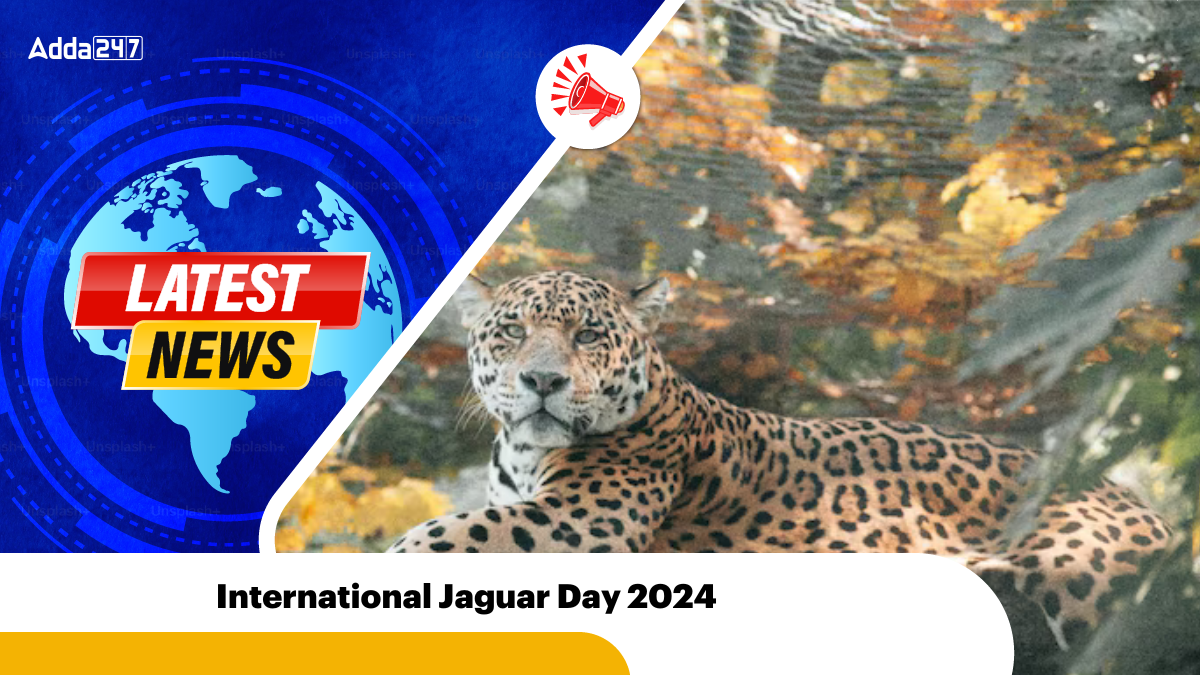Every year on November 29, the world observes International Jaguar Day to raise awareness about the significance of jaguars and the urgent need for their conservation. As apex predators in the Americas, jaguars (scientifically known as Panthera onca) are vital to maintaining ecological balance. However, their survival is increasingly threatened, making this day an important occasion for action and advocacy.
History of International Jaguar Day
International Jaguar Day was established in 2018 as part of a global effort to conserve the species. The initiative was spearheaded by Panthera, an organization dedicated to wild cat conservation, in collaboration with governments and conservation groups.
The chosen date, November 29, commemorates the adoption of the Jaguar Corridor Initiative—a groundbreaking program aimed at protecting jaguar habitats across 18 countries from Mexico to Argentina. This initiative ensures that jaguars can roam freely in their natural environments, maintaining their vital role in ecosystem balance.
Significance of Jaguars
The jaguar is the largest big cat in the Americas and the third-largest globally, following tigers and lions. Beyond their majestic appearance, jaguars are keystone species, meaning their presence and activities help regulate prey populations and sustain ecosystem health.
International Jaguar Day highlights:
- Ecological Importance: Jaguars play a critical role in controlling prey populations, preventing overgrazing and maintaining biodiversity.
- Conservation Initiatives: The day raises awareness about efforts like protected reserves and wildlife corridors.
- Community Engagement: It encourages governments, organizations, and individuals to contribute to conservation efforts through advocacy, funding, and sustainable practices.
Threats to Jaguar Survival
Despite their importance, jaguars face several challenges, including:
- Habitat Loss: Deforestation for agriculture, urban development, and logging has reduced over 40% of their historical range.
- Human-Wildlife Conflicts: As human settlements encroach on jaguar territory, retaliatory killings occur when jaguars prey on livestock.
- Illegal Hunting: Jaguars are hunted for their pelts, teeth, and bones, used in traditional medicine or as status symbols.
- Climate Change: Altered weather patterns and shrinking water sources disrupt their habitats.
- Infrastructure Projects: Roads, dams, and other developments fragment habitats, preventing jaguars from accessing food and mates.
How to Contribute to Jaguar Conservation
There are several ways individuals and organizations can support jaguar conservation:
- Donate: Contribute to organizations like Panthera and the World Wildlife Fund (WWF), which actively protect jaguar populations and habitats.
- Promote Sustainable Practices: Support farming and forestry methods that minimize habitat destruction.
- Spread Awareness: Use social media platforms to educate others about the importance of jaguars and the threats they face.
- Responsible Tourism: Visit wildlife reserves ethically, ensuring your contribution benefits local conservation efforts and economies.
Summary in Table Form
| Aspect | Details |
|---|---|
| Date | November 29 |
| Established in | 2018 |
| Initiative By | Panthera, in collaboration with governments and conservation groups |
| Purpose | Raise awareness about the ecological importance of jaguars and promote their conservation |
| Key Threats | – Habitat loss – Human-wildlife conflicts – Illegal hunting – Climate change impacts – Infrastructure development |
| Conservation Efforts | – Protected reserves and wildlife corridors – Community involvement – Sustainable farming and forestry |
| How to Help | – Donate to conservation groups – Advocate sustainable practices – Spread awareness – Practice responsible wildlife tourism |



 National Women's Day 2026 India: Signifi...
National Women's Day 2026 India: Signifi...
 World Radio Day 2026: Why Radio Still Ma...
World Radio Day 2026: Why Radio Still Ma...
 National Productivity Council Marks 68th...
National Productivity Council Marks 68th...








